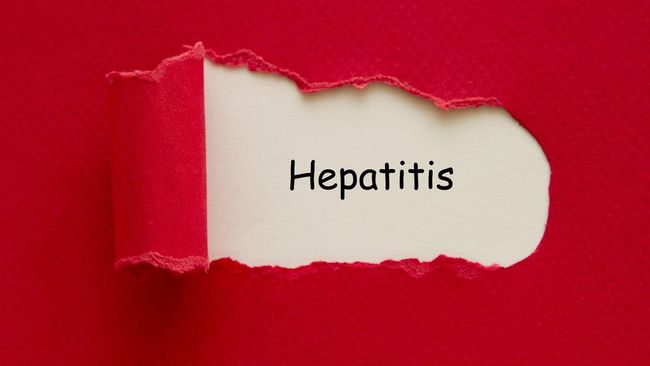Day Hepatitis The world is celebrated every year on 28 July. This day is celebrated as a moment to raise public awareness of disease hepatitis.
Until now, hepatitis is still one of the infectious diseases that is a public health problem in various countries, including Indonesia.
In commemoration of this time, the World Hepatitis Alliance (WHA) launched a global campaign themed ‘I Can’t Wait’.
ADVERTISEMENT
SCROLL TO RESUME CONTENT
–
“This campaign aims to disseminate important information about the dangers of hepatitis,” GSK said in a statement CNNIndonesia.comThursday (28/7).
This campaign also invites the public to accelerate the handling of hepatitis because this disease cannot wait.
Hepatitis is an inflammatory disease of the liver caused by a viral infection. This disease can be transmitted between humans.
There are many types of hepatitis. Hepatitis A, B, and C are the most common types of hepatitis in Indonesia.
Hepatitis A is transmitted through the fecal-oral route, where the virus enters the mouth through contaminated food or objects. While hepatitis B and C are transmitted through body fluids infected with the virus.
Prevention and treatment of hepatitis should not be delayed. The longer it is left, the disease will worsen the patient’s condition. If not treated properly, hepatitis can increase the risk of liver cancer and lead to death.
The World Health Organization (WHO) noted that there is one case of death due to hepatitis in every 30 seconds in the world. WHO predicts there are about 354 million people in the world living with hepatitis B and C.
In Indonesia, the prevalence of hepatitis B reached 7.1 percent or about 18 million cases. This figure is higher than other neighboring countries. While the prevalence of hepatitis C reached 2.34 percent or about 6 million cases.
Beware of Hepatitis in Children
|
Illustration. World Hepatitis Day is observed every 28 July. (iStock/Kong Ding Chek)- – |
The 2018 Basic Health Research Report (Riskesdas) found that the largest prevalence of hepatitis cases in Indonesia occurred in the group of children aged 5-14 years.
Pediatrician Kurniawan Satria Denta said that children are vulnerable to contracting the virus that causes hepatitis.
“In order to avoid the threat of hepatitis, parents are advised to recognize the symptoms and understand the appropriate preventive measures,” he said.
Hepatitis is generally characterized by fever, abdominal pain, and the appearance of jaundice.
To prevent hepatitis, parents can maintain a clean lifestyle and carry out routine immunizations for their children.
“In addition to maintaining cleanliness, immunization is also the best prevention effort that can be done because the hepatitis vaccine works to provide immunity to the child’s body so that it can prevent the disease,” said Denta.
The Indonesian Pediatrician Association (IDAI) recommends that basic hepatitis B immunization be given when a child is born before the age of 12 hours.
While the basic hepatitis A immunization is given twice. Namely when the child is one year old, and 6-12 months after the first dose.
“However, if left behind, children can receive catch-up immunizations until they are 18 years old,” added Denta.
(asr)
–


